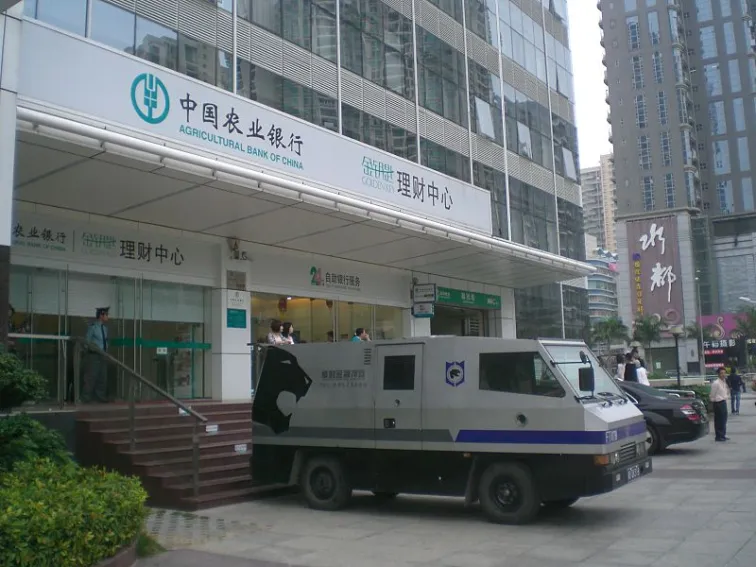
Don't be fooled by Agricultural Bank of China's best-in-class liquidity profile
It has the weakest capital position among the Big 4 banks.
According to Bernstein Research, one of AgBank's key strengths and what differentiates it most from peers is its deposit franchise. AgBank's deposit franchise is the best among the major HK- listed Chinese banks.
Here's more from Bernstein:
It is driven by its 23,000+ branch network which is the largest in China (ICBC, at the 2nd largest, has 17,000+ branches) and its strong exposure to rural areas where AgBank often benefits from being the only bank in operation.
Funding has never been a problem for AgBank and its total funding costs are the lowest in the group. Over 2011-12, its average funding costs were just 1.82%, 9bp lower than the next closest bank (CCB at 1.91%) and 24bp lower than the peer average of 2.06%.
It is AgBank's strong deposit franchise that has resulted in low funding costs for the bank. No other bank generates as high a percentage of its funding base from customer deposits as AgBank. Over the past two years (2011-12), 91% of AgBank's funding came from deposits which means only 9% came from more expensive sources such as interbank borrowings and subordinated debt.
AgBank Has the Weakest Capital Position among the Big 4 Banks
The most glaring weakness at AgBank is its low capital adequacy ratios. AgBank has consistently lagged the other Big 4 banks (BOC, CCB & ICBC) when it comes to its capital ratios both before the implementation of Basel III and (as of Q1 2013) after.
AgBank's capital weakness started immediately after its July 2010 IPO. While its IPO set the record for the largest IPO ever at US$24 billion (including the greenshoe option), it was actually a slight disappointment for the bank as they had initially hoped for a larger IPO.
As evidence of this, only 17% of AgBank's shares were floated into the market due to weaker demand. As a result, the government ownership in AgBank is higher than the other Big 4 banks.
At year-end 2012, the Chinese government (via Huijin, the Ministry of Finance and the Social Security Fund) owned 83% of AgBank with the other 17% held by both A- and H-shareholders. At the other Big 4 banks, the government owned 71% of ICBC and BOC and 68% of CCB.
The bank's Tier 1 Capital Ratio is lower than the other big 3 banks (at 9.27%) and falls short of the minimum requirement of 9.50% it will be held to by 2018. Its weak capital position has forced the bank to issue expensive Tier-1 capital instruments and to slow balance sheet expansion in the coming years to avoid further dilutive capital raises. It also hinders its ability to reward shareholders with higher cash dividend payout (we believe ICBC&CCB has the potential).




![Lorem Ipsum [ABF 1]](https://cmg-qa.s3.ap-southeast-1.amazonaws.com/s3fs-public/styles/exclusive_featured_article/public/2025-03/a_hand_pointing_to_a_futuristic_technology_5b87c9d0e3_1.png.webp?itok=2w0y1WhS)


![Cross Domain [Manu + SBR + ABF + ABR + FMCG + HBR + ]](https://cmg-qa.s3.ap-southeast-1.amazonaws.com/s3fs-public/styles/exclusive_featured_article/public/2025-01/earth-3537401_1920_4.jpg.webp?itok=WaRpTJwE)







 Advertise
Advertise

